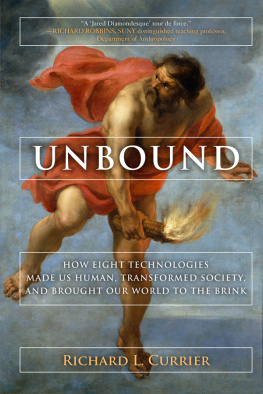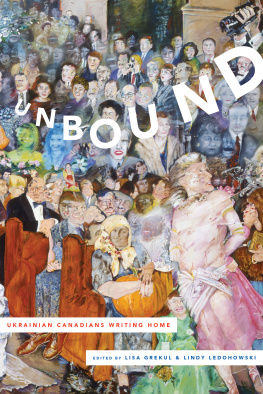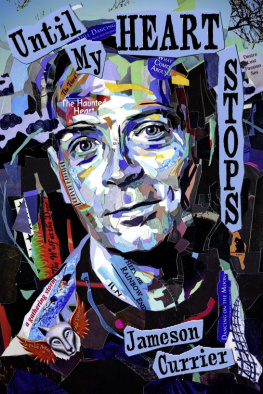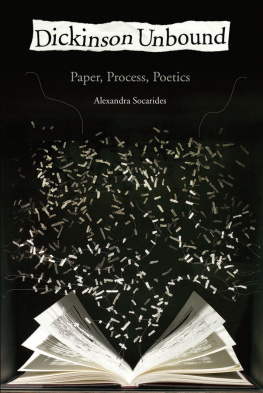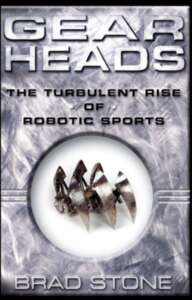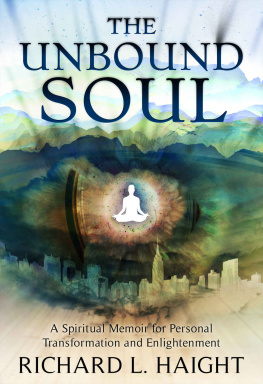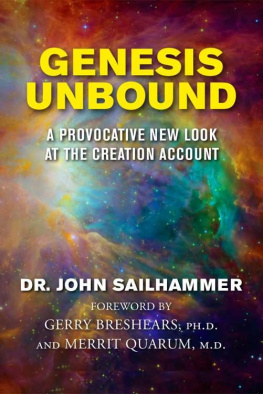Richard L Currier - Unbound
Here you can read online Richard L Currier - Unbound full text of the book (entire story) in english for free. Download pdf and epub, get meaning, cover and reviews about this ebook. year: 2015, publisher: Arcade Publishing, genre: Home and family. Description of the work, (preface) as well as reviews are available. Best literature library LitArk.com created for fans of good reading and offers a wide selection of genres:
Romance novel
Science fiction
Adventure
Detective
Science
History
Home and family
Prose
Art
Politics
Computer
Non-fiction
Religion
Business
Children
Humor
Choose a favorite category and find really read worthwhile books. Enjoy immersion in the world of imagination, feel the emotions of the characters or learn something new for yourself, make an fascinating discovery.
- Book:Unbound
- Author:
- Publisher:Arcade Publishing
- Genre:
- Year:2015
- Rating:3 / 5
- Favourites:Add to favourites
- Your mark:
- 60
- 1
- 2
- 3
- 4
- 5
Unbound: summary, description and annotation
We offer to read an annotation, description, summary or preface (depends on what the author of the book "Unbound" wrote himself). If you haven't found the necessary information about the book — write in the comments, we will try to find it.
Unbound — read online for free the complete book (whole text) full work
Below is the text of the book, divided by pages. System saving the place of the last page read, allows you to conveniently read the book "Unbound" online for free, without having to search again every time where you left off. Put a bookmark, and you can go to the page where you finished reading at any time.
Font size:
Interval:
Bookmark:


Copyright 2015 by Richard L. Currier
All rights reserved. No part of this book may be reproduced in any manner without the express written consent of the publisher, except in the case of brief excerpts in critical reviews or articles. All inquiries should be addressed to Arcade Publishing, 307 West 36th Street, 11th Floor, New York, NY 10018.
First Edition
Arcade Publishing books may be purchased in bulk at special discounts for sales promotion, corporate gifts, fund-raising, or educational purposes. Special editions can also be created to specifications. For details, contact the Special Sales Department, Arcade Publishing, 307 West 36th Street, 11th Floor, New York, NY 10018 or .
Arcade Publishing is a registered trademark of Skyhorse Publishing, Inc., a Delaware corporation.
Visit our website at www.arcadepub.com.
Visit the authors website at www.richardlcurrier.com.
10 9 8 7 6 5 4 3 2 1
Library of Congress Cataloging-in-Publication Data
Currier, Richard L.
Unbound : how eight technologies made us human, transformed society, and brought our world to the brink / Richard L Currier. - First edition.
pages cm
Includes bibliographical references and index.
ISBN 978-1-62872-522-3 (hardback) - ISBN 978-1-62872-546-9 (E-book)
1. Technology and civilization-History. 2. Human evolution. 3. Population.
4. Environmental degradation. 5. Sustainable development. I. Title.
CB478.C87 2015
303.4-dc23
2015014024
Cover design by Anthony Morais
Cover photo: Prometheus Carrying Fire by Jan Cossiers, courtesy of Wikimedia Commons
Printed in the United States of America
CONTENTS
The invention of eight key technologies during the five-million-year history of humanity freed our species from the natural constraints that govern all other forms of life.
The tree-dwelling life of the primates foreshadowed not only the evolution of the human physical form but also human social life, culture, and technology.
Prehistoric apes learned to make wooden spears and digging sticks, began to walk and run on two legs, revolutionized sex, and evolved into early hominids.
As early hominids evolved into emerging humans, they learned to sleep with fire, live in caves, and cook foodand became naked in the process.
The emerging humans constructed dwellings to shelter themselves, fashioned clothing to protect their bodies, and established new homelands in the cold northern latitudes.
Modern humans developed visual and verbal symbolism, invented traditions of music, art, and design, adopted distinct tribal and ethnic identities, and began to fuse into large-scale groups.
The technology of agriculture led to the creation of permanent human settlements, the accumulation of wealth, the formation of socioeconomic classes, the economic importance of children, the suppression of female sexuality, and the genesis of organized warfare.
Innovations in the technologies of human interactionin travel, trade, and the written wordenabled agricultural people to create social relationships across previously unbridgeable spans of time and space, leading to the development of cities and the birth of urban civilization.
When the clockmakers of Medieval Europe created precision machinery, they unleashed a transformation that produced the industrial revolution, another explosive growth in the human population, and the exploitation of virtually the entire planet for the fulfillment of human needs.
From the nature of work and human interaction to the design of everything humans build and manufacture, and even to the nature of history itself, the digital revolution will transform human life and society as profoundly as any technology has transformed it in the past.
The explosive growth of the human population and its voracious consumption of the earths resources has led to rapid environmental disintegration and a growing risk of planetary catastrophe.
I NTRODUCTION
All truth passes through three stages: first, it is ridiculed; second, it is violently opposed; third, it is accepted as self-evident.
Anonymous
S ixty-five million years ago, an asteroid more than six miles wide, traveling at a speed of 67,000 miles per hour, slammed into the earth off the coast of southern Mexico with a force 500 million times greater than the atomic bomb that was dropped on Hiroshima. That event triggered major disruptions in the earths climate, ultimately producing an environmental catastrophe that resulted in the extinction of the dinosaurs and 75 percent of all species of life on Earth.
We are now in the process of another mass extinction of plants and animals caused by human activity that may ultimately become as deadly as the previous five mass extinctions that have taken place in the earths geologic history. A majority of biologists believe that more than half of all living things will become extinct within the next century or two, with unknown consequences for the future and for the dwindling number of species that will remain alive.
We humans are no longer a species of simple hunters and gatherers living within the constraints of a stable natural world. Instead, freed from many of our natural limitations by the relentless progress of technology, we have become the unbound masters of the biosphere.
Over the course of the last five million years, eight key technologies have profoundly altered the relationship of our species with the natural environment, liberating us from the natural forces that restrain the populations of all other living things. One by one, each of these technologies has initiated a major transformation, or metamorphosis, in human life and society. These metamorphoses have revolutionized the structure of our bodies, expanded the capabilities of our minds, and given birth to human societies of unparalleled size and power.
In the modern era, humanity has gained control over nearly all of the earths natural environments and has essentially converted the entire planet into a vast production unit for its own exclusive benefit. In the process, the newly unbound human species has taken over much of the natural environment, polluted the earths soils, oceans, and atmosphere, and brought our world to the brink of catastrophe.
Our species is unique among all earthly creatures in its ability to comprehend and plan for the long term. Yet we are still motivated by ancient animal instincts, including the drive to expand and multiply to the limits of the possible. Other living things are limited in their ability to reproduce by the relatively fixed nature of their relationship to the environment. But by allowing us to escape the bonds of our biological destiny, technology has made it possible for us to continue multiplying, even as we have moved the world ever closer to an uncertain and potentially disastrous future.
Five million years ago, the adoption of fabricated spears and digging sticks by our ape-like ancestors encouraged us to stand, walk, and run upright. This innovation eventually produced a radical restructuring of mammalian anatomy that freed the forelimbs from the duties of locomotion. With the free use of their powerful forelimbs and dexterous hands, our ancestors were able to control fire, fashion clothing, and build dwellings. These technologies liberated us from the need to live in the tropical environments where we originated and allowed us to populate the vast temperate regions of Europe and Asia.
Font size:
Interval:
Bookmark:
Similar books «Unbound»
Look at similar books to Unbound. We have selected literature similar in name and meaning in the hope of providing readers with more options to find new, interesting, not yet read works.
Discussion, reviews of the book Unbound and just readers' own opinions. Leave your comments, write what you think about the work, its meaning or the main characters. Specify what exactly you liked and what you didn't like, and why you think so.

